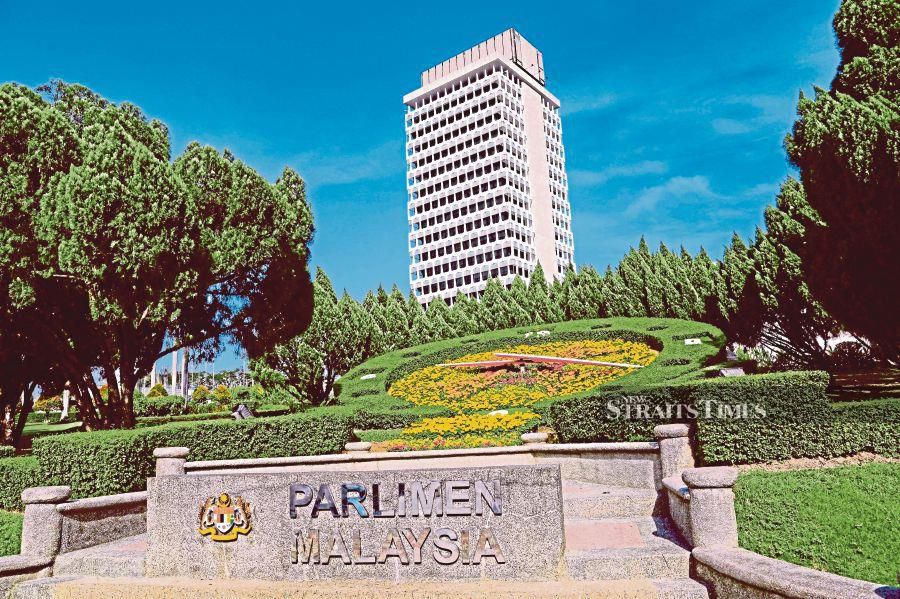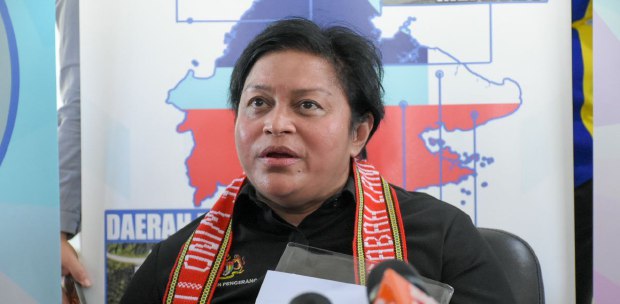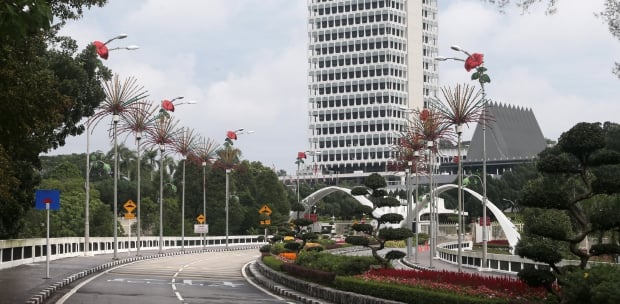KUALA LUMPUR: The anti-party hopping law, which came into effect on Oct 5, will not only ensure political stability in Malaysia, but also boost voters' confidence in the candidates they chose in elections.
Experts believe that the law will ensure that shifts in alliances involving a handful of members of parliament would not result in a change of government or the prime minister.
Dr Azmi Hassan, who is a senior fellow at the Nusantara Academy for Strategic Research, said the Constitution (Amendment) (No. 3) Bill 2022, passed and enforced following an amendment to the Federal Constitution, would ensure that the whims and fancies of a few MPs would not result in seismic shifts.
"This law is a testament to our politicians' maturity, as 209 MPs were present during the Dewan Rakyat session to approve the amendment and they unanimously passed the Bill.
"The support for the law stemmed from the demands of voters, who have, in the past four-and-half years, been sidelined from any political decision, including the ones that prompted the change of government," he told the New Straits Times.
Azmi said caretaker Prime Minister Datuk Seri Ismail Sabri Yaakob played a crucial part in "making it happen", by proposing and pushing for the bill to be gazetted before the 15th General Election (GE15) with the overwhelming support of the MPs.

Political analyst Dr Ainul Adzellie Hasnul said the law was proof of Ismail Sabri's commitment in ensuring a stable government.
He said Ismail Sabri, being the country's third prime minister in a single term following GE14, could have predicted yet another change in government when he took office if nothing was done.
"If there was no suggestion to table the anti-hopping law, Pakatan Harapan may have taken action by pulling some lawmakers from other parties to regain the majority to form a government," he said.
"Let this be a lesson to all. If the country is in a chaotic state, no investors would want to come here and the economy would be greatly damaged."
Ainul said the agreement brokered between Ismail Sabri and the opposition had prevented another "Sheraton Move", as well as something similar to the Perak constitutional crisis in 2008.
The "Sheraton Move" refers to the collapse of the Pakatan Harapan government 22 months after the coalition won the 14th General Election.
The incident saw a mass exodus of PH MPs, who left to join Parti Pribumi Bersatu Malaysia, including Gombak MP Datuk Seri Azmin Ali and Ampang MP Zuraida Kamaruddin, both senior PKR leaders at the time.

This led to then prime minister Tun Dr Mahathir Mohamad stepping down from office after announcing that he had lost majority support.
Tan Sri Muhyiddin Yassin, who took over the office from Dr Mahathir, then formed the Perikatan Nasional government.
Following months of political turmoil, Muhyiddin stepped down as prime minister on Aug 16 after losing majority support.
Ismail Sabri, who was sworn in as the ninth prime minister on Aug 21, pledged to strive for stability and set an example as a leader who moved away from partisan bias.
Ainul said should an MP jump ship, a by-election would be held to allow voters to choose only those representing the parties of their choice.
"The MPs must serve the rakyat with integrity, instead of using the political party's ticket to win the seat for their own mileage.
"If no party can form a government, a unity government is possible.
"But this is a different scenario than MPs leaving the party. It is just a matter of two coalitions working together and forming a government."
MPs, he said, were now bound by the anti-hopping law and must think of the interests of their respective parties before their own.
The anti-party hopping law came into effect following an amendment to the Federal Constitution passed by the Dewan Rakyat on July 28, and later the Dewan Negara on Aug 9 through a bloc voting, which saw 52 out of 60 Senators supporting it.
The new Article 49A of the Constitution addresses, among others, members of parliament who lose the seat they held for leaving a political party.
The law was created to prevent individuals elected on the ticket of a political party from crossing over to another political party after winning a seat.
This was one of the demands made by opposition leaders, which led to them signing a historic memorandum of understanding with Ismail Sabri in September last year.
Following this, active discussions with political parties and stakeholders, including constitutional experts and representatives from non-governmental organisations, were organised to look into the proposed law.
Engagement sessions were also held with state governments to ensure uniform guidelines on dealing with defectors.
Some states have already implemented similar anti-hopping laws to present assemblymen from switching allegiances.






